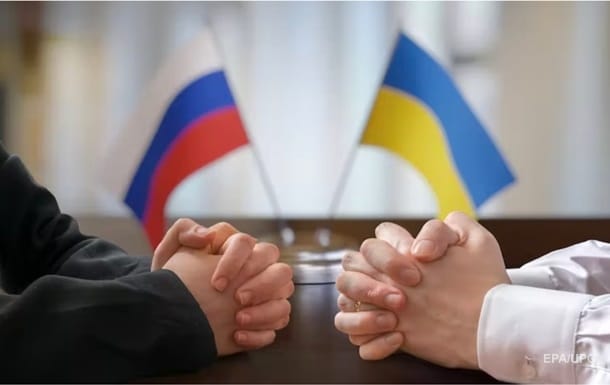Is Ukraine getting closer to negotiations with Russia?
The reasons that would make Ukraine negotiate

Ukraine is possibly moving towards the most disappointing moment of the ongoing Russian-Ukrainian war - negotiations that won't recognize either winner or loser.
The narrative of the Ukrainian authorities to liberate all occupied Ukrainian territories including Donbas and Crimea seems to look more and more unrealistic.
Since the tremendous Russian plan to capture Kyiv and a huge part of Ukraine failed miserably in the first months after the full-scale invasion, Russia didn`t stop its efforts to continue this war and to achieve at least something, pinning hopes that Western partners would stop supporting Ukraine and switching to the war of attrition.
Though the Russian army is exhausted and carries enormous losses in personnel and equipment it reset its goal and now aims to take over at least the rest of Donetsk Oblast (oblast an administrative division or region in Ukraine) that has remained under Ukrainian control and keep the already captured parts of Ukraine. After that Vladimir Putin intends to pressure Ukraine into negotiations and secure a ceasefire, giving Russia the crucial time needed to regroup and regain strength. And conditions for this are very conducive at the moment.
Unfortunately, Ukraine is at a stage where it is increasingly likely to consider negotiations. Several factors indicate it.
The critical situation with the power grid
Russia weaponized electricity and attempted to cast Ukrainians into darkness hitting the power grid since October 2022. Thanks to the efforts of power company employees and the support of foreign partners, the damage from the attacks was swiftly repaired, keeping the grid operational, though very fragile.
Russia renewed attacks on the power grid this Spring and Summer as a response to Ukrainian attacks on Russian refineries, which caused a lot of trouble, long power outages for civilians, and increased risks to go through the winter season.
Political reasons
Recently President Volodymyr Zeleskiy visited the USA - the most important Ukrainian ally to present his "victory plan". In general, his visit was far from triumph and hasn't caused the expected excitement. In the end, Zelenskyi left the US without achieving anything on two main issues: permission to use long-range Western weapons to strike Russia and applying to join NATO. His "victory plan" was described in media more like the need for more military aid to keep the ability to fight against Russia.
In this regard, it is expected that the West will increase its pressure on Zelenskiy to start negotiations with Russia.
Upcoming elections in the USA make the current situation more and more tense, the US rhetoric will significantly change depending on which presidential candidate wins. It is worth mentioning that the aid package provided by the USA in April and receipt of which turned into a very complex process will last till the end of the year.
Taking into account all the challenges and complications that accompanied the the receipt of the previous aid package it seems unlikely that the USA will be able to provide Ukraine with aid in such significant volumes in the future. While Ukraine's strongest supporters in Europe lack sufficient weapon stockpiles to continue supporting Kyiv effectively.
This, along with the West's overall fatigue from the protracted war, could be pivotal in pressuring Ukraine to negotiate with the enemy.
The situation on the frontline
Despite the successful, drone strikes on Russian refineries, air bases, and ammunition depots and the stunning Kursk incursion operation the current situation on the battlefield remains difficult. Russia didn't leave its goal to capture the rest of the Donetsk oblast territory carrying out the so-called "creeping occupation".
Ukrainian soldiers are losing their motivation and their fighting spirit reached its lowest point since the beginning of the war. Soldiers are disappointed and do not see a possibility for the victory in the foreseeable future. They are frustrated and afraid that they ar stuck at the front line "forever". Increasingly soldiers confess that they would prefer negotiations and that they don`t want that next generations inherit endless conflict.
Some decisions by the military command are also quite disappointing, such as deploying the most capable units to Kursk Oblast to hold territory, while less experienced units and rookie soldiers are positioned in the hottest zones in Donetsk Oblast, where Russian forces are advancing.
The fatigue among Ukrainian society
According to a May survey by the Kyiv International Institute of Sociology (KIIS), 57% of Ukrainians see the need for negotiations with Russia in order to achieve peace. For comparison, a year ago there were only 33%.
At the same time, more than half of respondents—55%—declared they are not ready to cede any territory. It is noteworthy, however, that at the beginning of last year, 87% of respondents held this view.
The survey revealed that the war is causing increasingly severe losses: 77% reported the death of family members, friends, or acquaintances, which is four times higher than two years ago.
Additionally, two-thirds of respondents indicated that the war has significantly worsened their financial situation.
Let also add here the fear of the fighting age men to be drafted and all their efforts to dodge mobilization which are boosting the already deplorable stage of corruption in the country.
The number of Ukrainians fearing for their lives and destinies of their children is also rapidly growing. Many of them consider to leave the country. It will cause a demographic crisis if the war won`t end any time soon.
All this indicates that the population of Ukraine is tired of the war in all respects and its invincible spirit seems to be is torn up.
The bottom line
As we can see that the complex of political, military,diplomatic, social factors makes the Government of Ukraine and its President unable to keep current narrative of soon victory and achieving the 1991 borders making potential negotiations with Russia more realistic.

